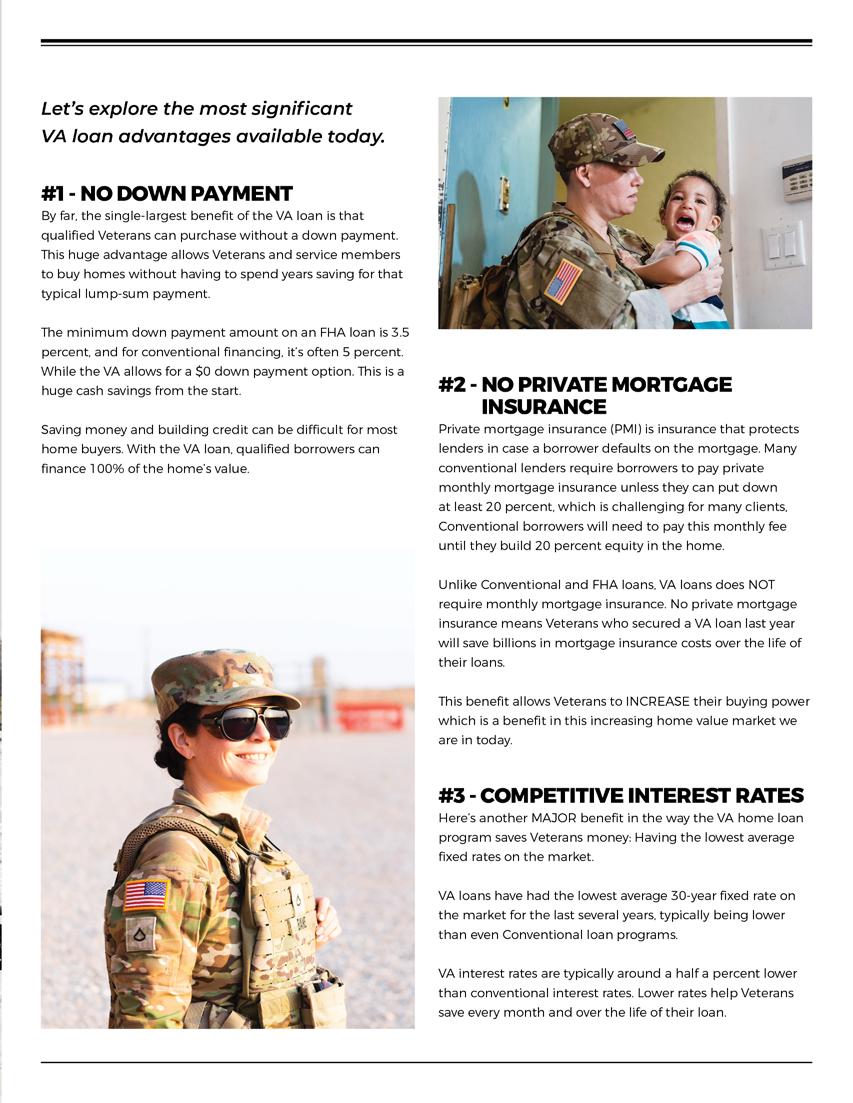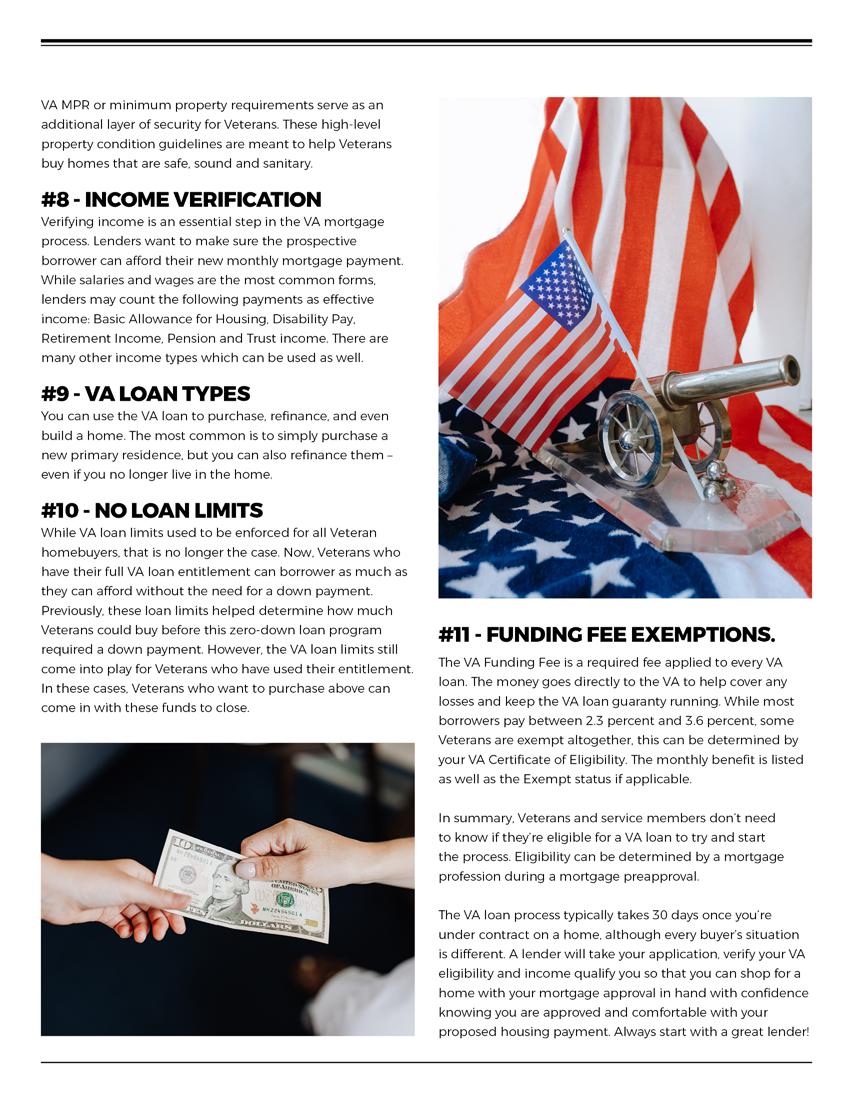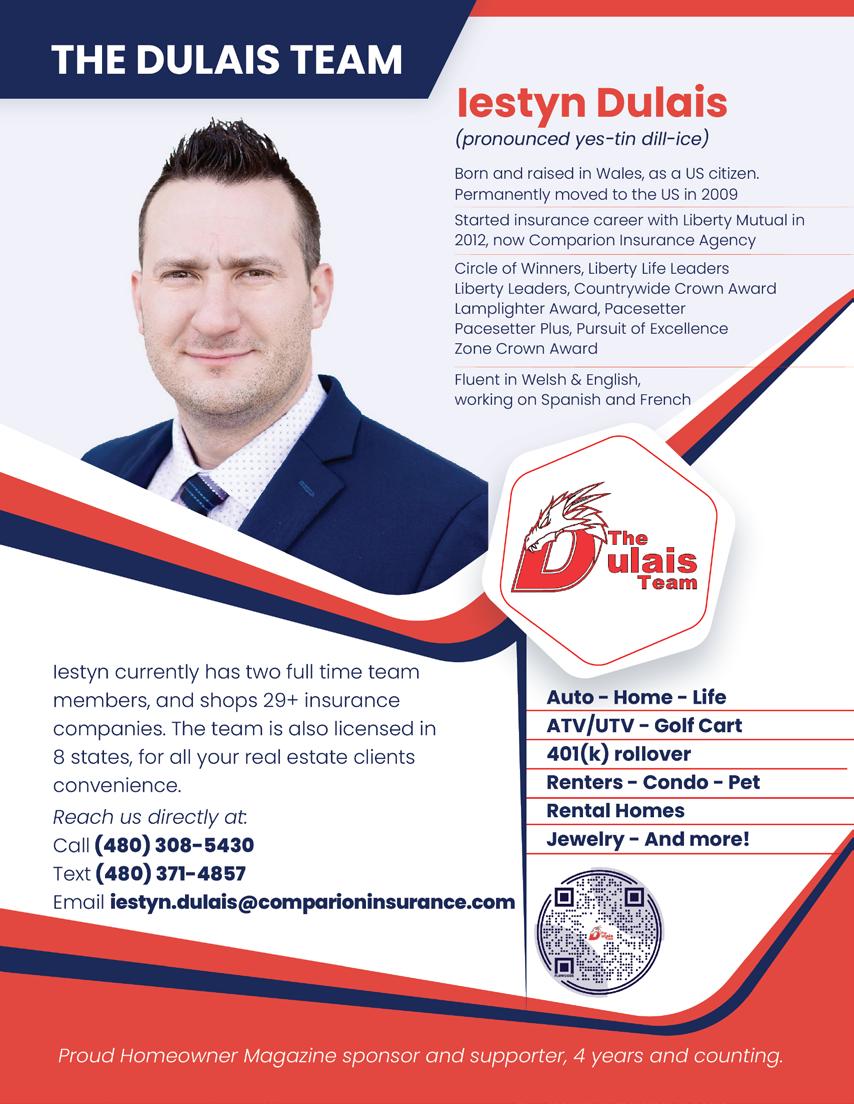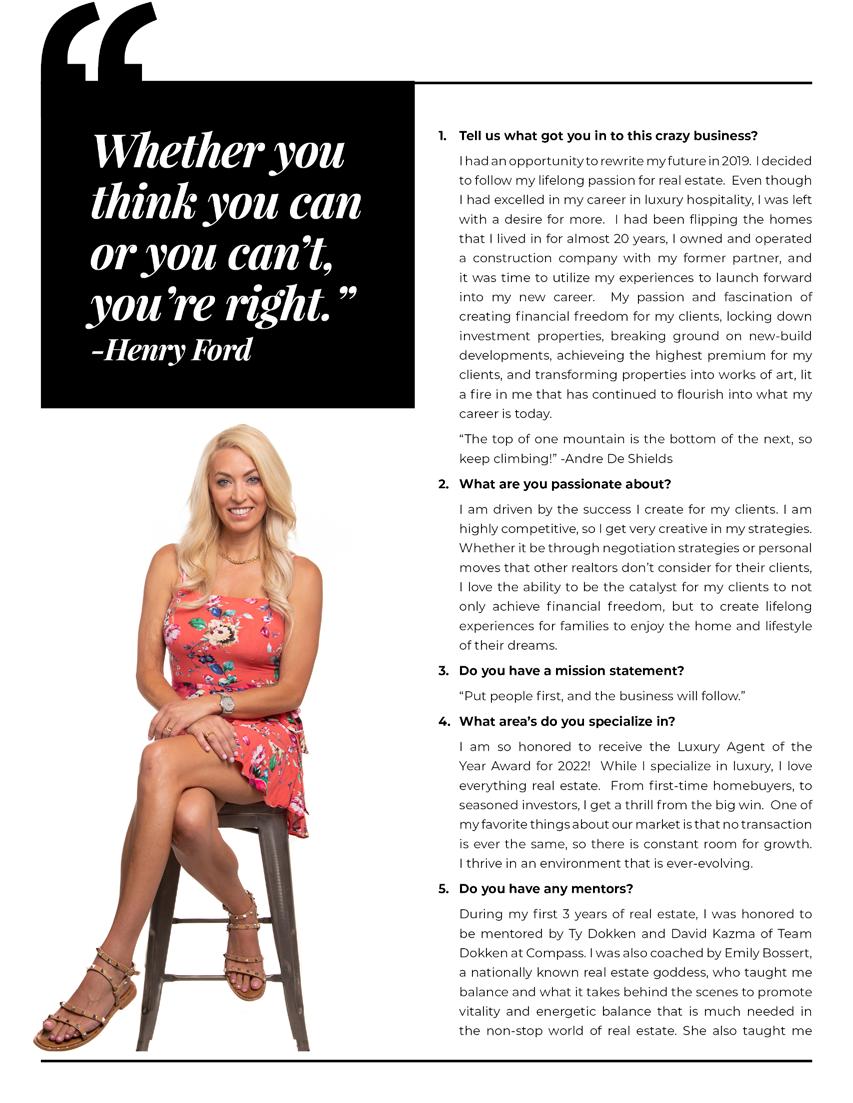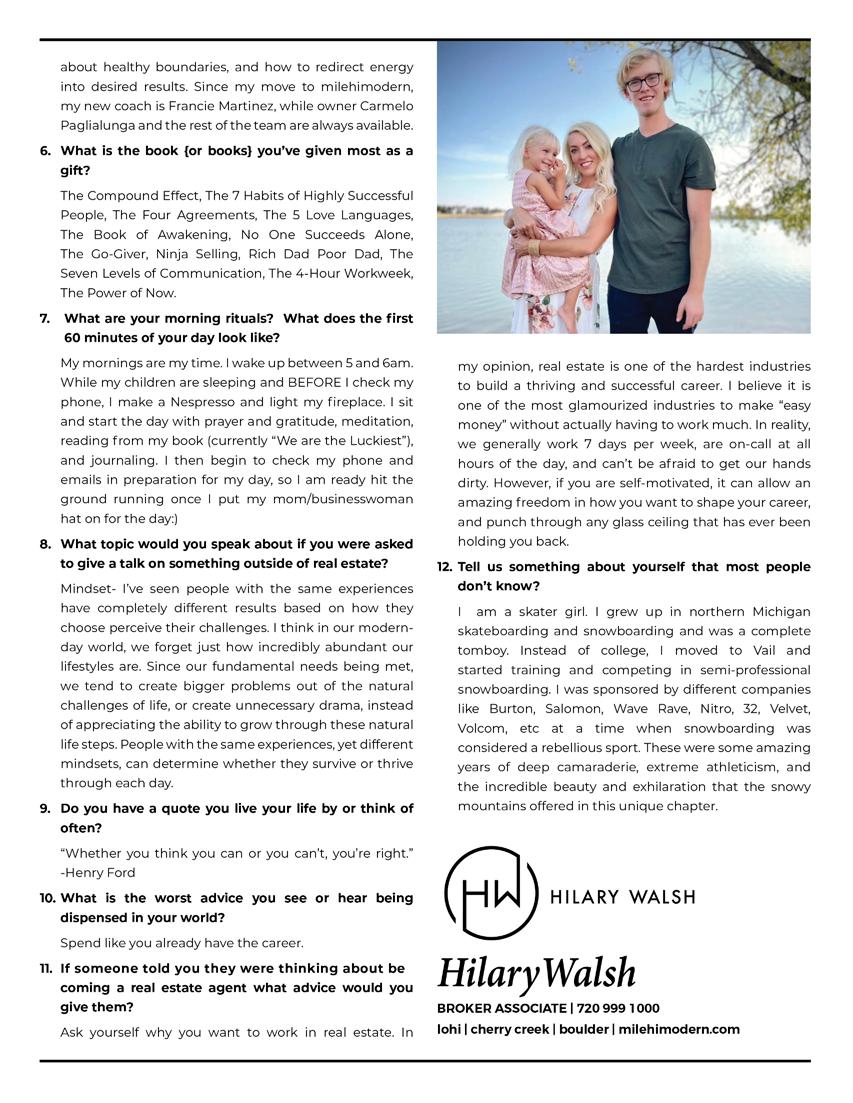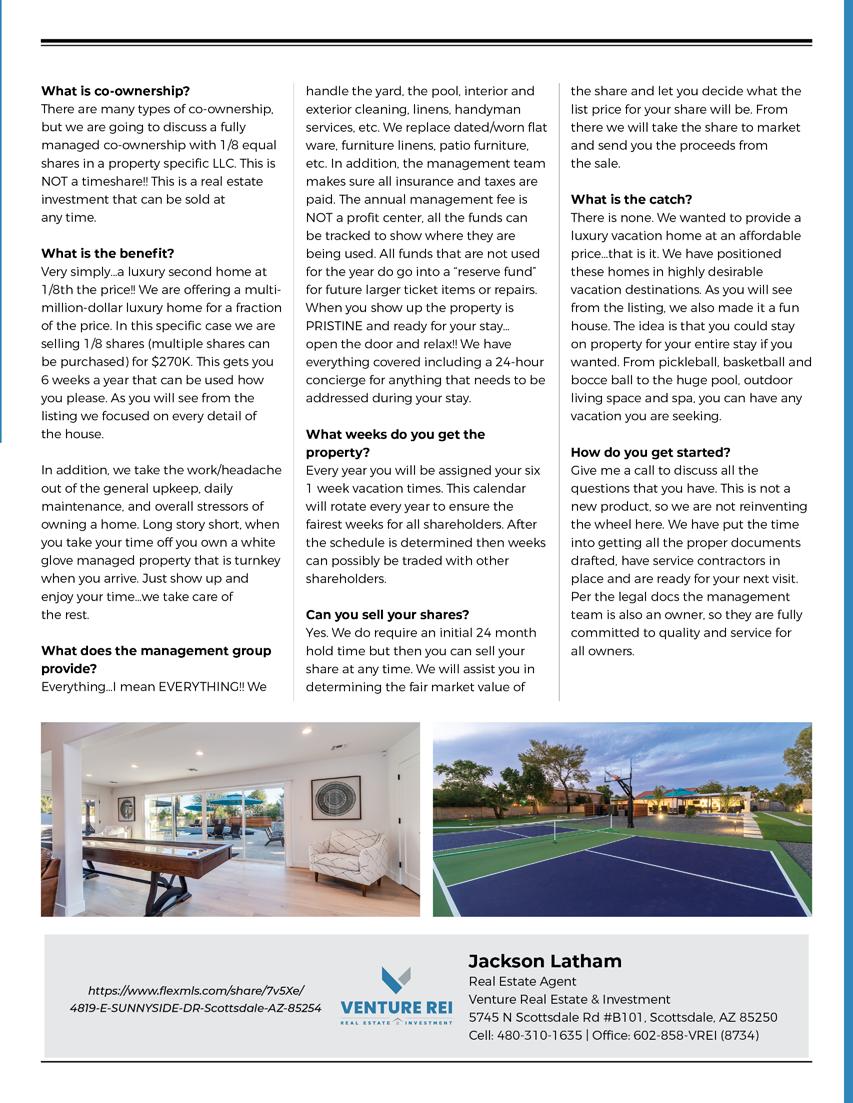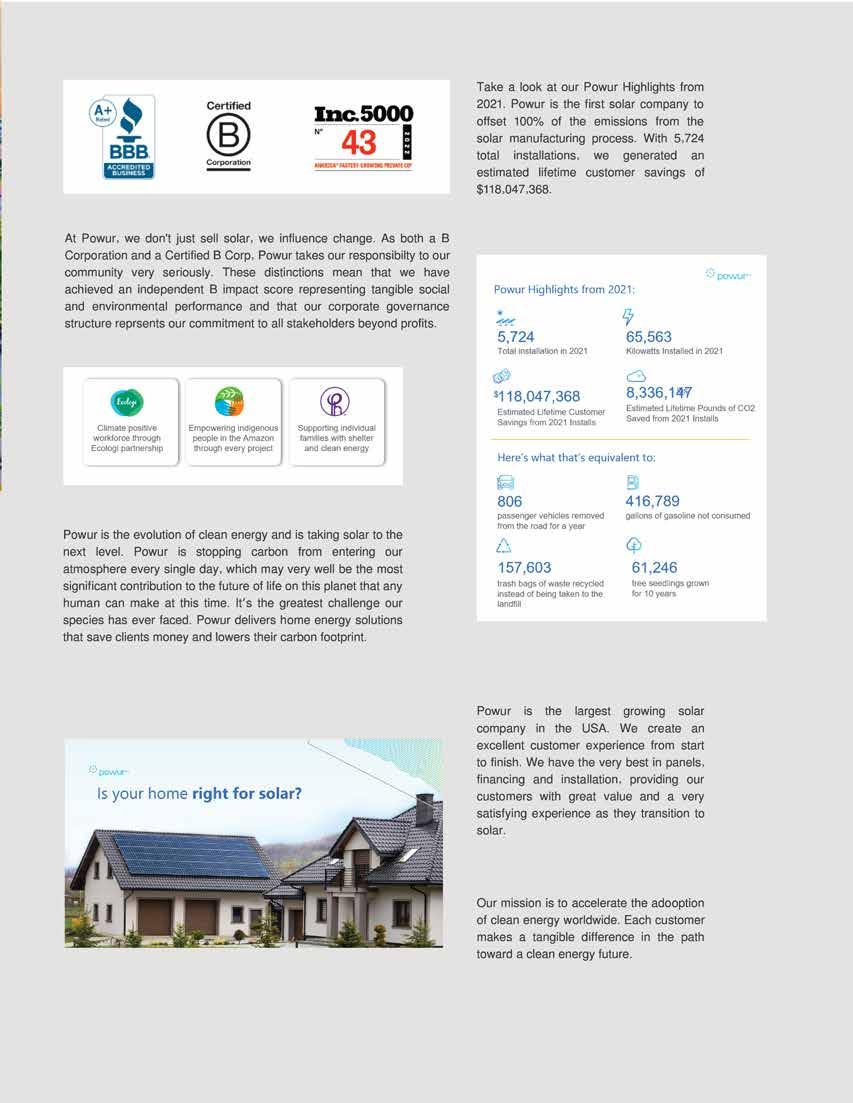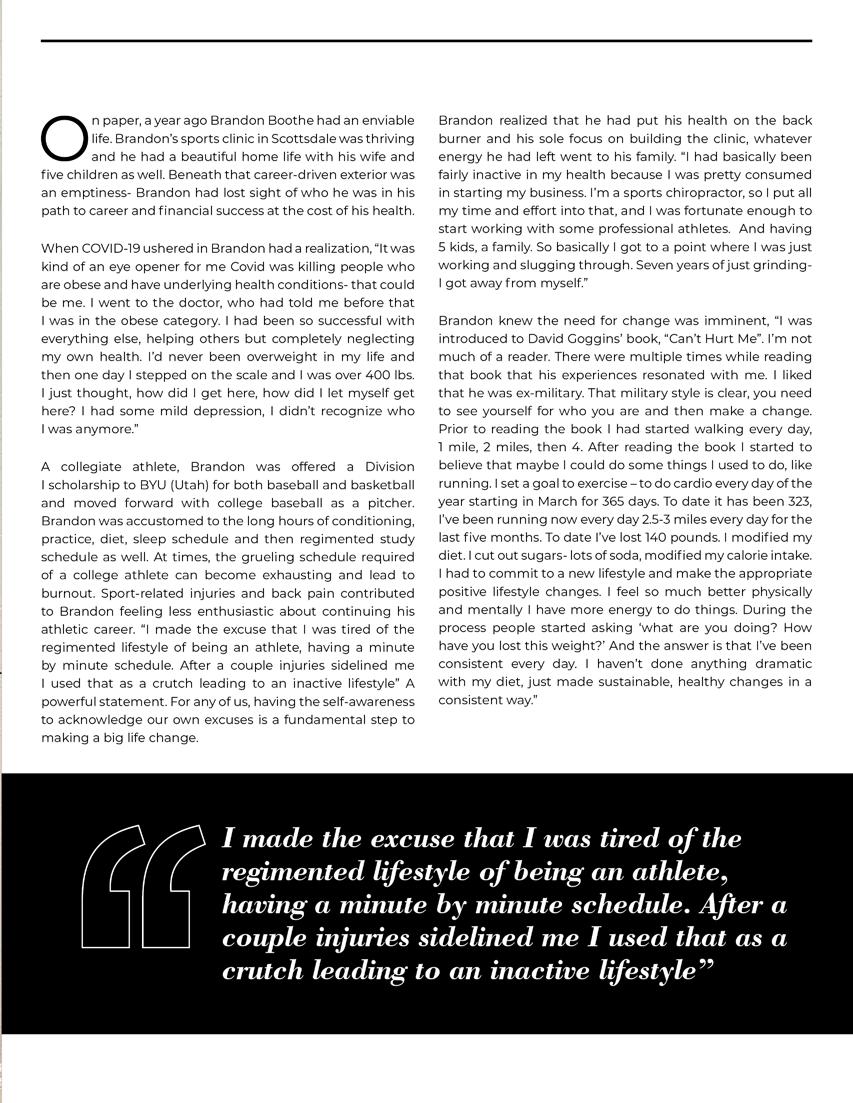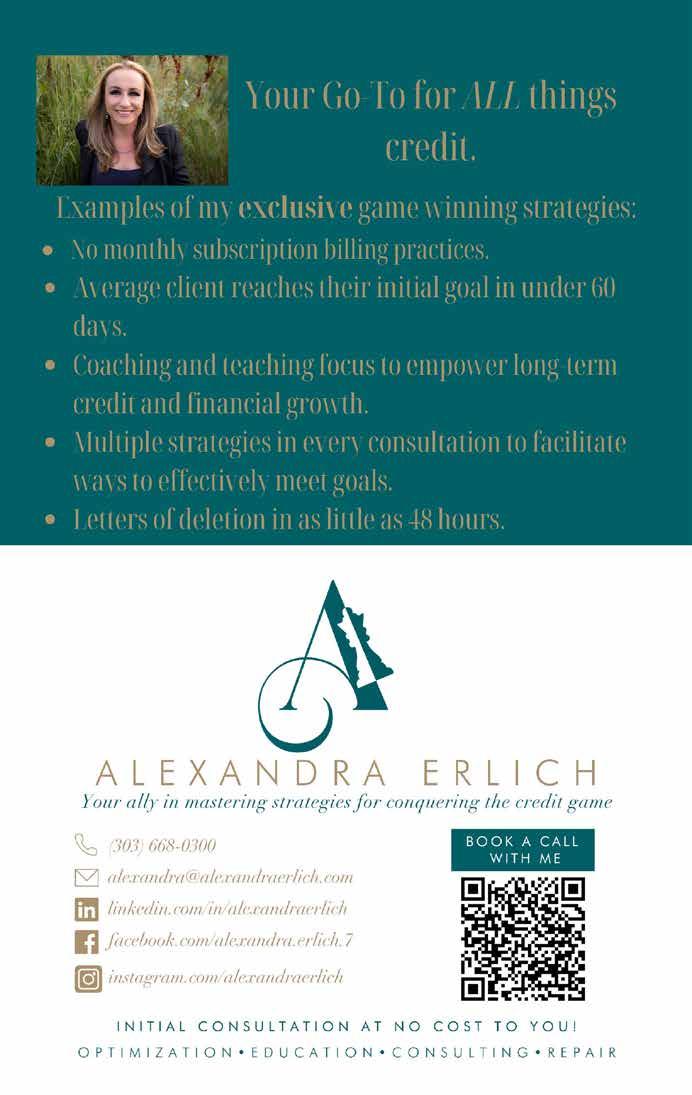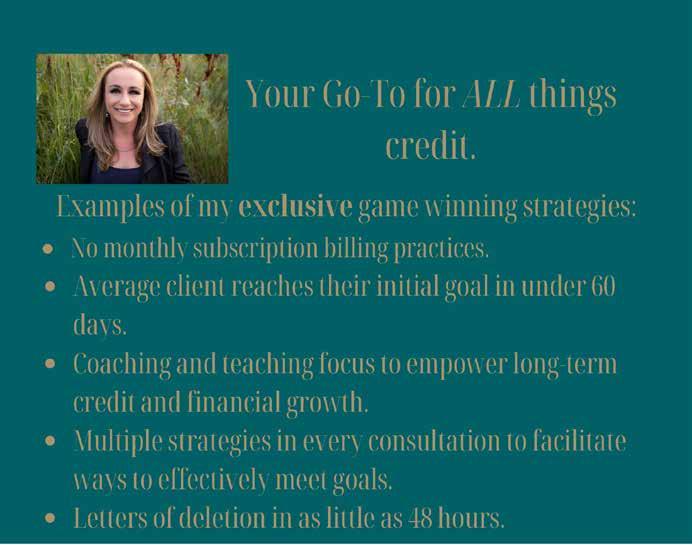A
Adapted from the book, The New Rules of Money
Brother
is tax deductible first year/33% average) $1,227 Monthly Net After-Tax Cost Sends $100 monthly to lender in effort to eliminate mortgage sooner
30-year mortgage at 7.42% APR
$10,000 Big Down Payment $30,000 left to invest
$1,175 Monthly Payment (100% is tax deductible first 15 yeas/64% average)
$799 Monthly Net After-Tax Cost
Adds $100 monthly to investments, plus $428 saved from lower mortgage payment where account earns 8% rate of return
Results after 5 Years
Received $14,216 in tax savings has $0 in savings and investments
Has no savings to get him through crisis Can’t get a loan – even though he has $74,320 more in equity than his brother –because he has no job Must sell his home or face foreclosure because he can’t make payments At this point – it’s a fire sale – he must sell at a discount and pay real estate commissions (6-7 %)
Received $25,080 in tax savings
Received $22,557 in tax savings has $83,513 in savings and investments
jobs?
Has $83,513, in savings to tide him over Doesn’t need a loan
then pay real estate commissions.
Brother B, while not particularly happy at the prospects of searching for a new job, is not worried because he has $83,513 in savings to tide him over. He doesn’t need a loan and can easily make his monthly payments, even if he is unemployed for years. He has no reason to panic, as he is still in control. Remember…
Can easily make his mortgage payments even if he’s unemployed for years
has no reason to panic since he’s still in control – remember... cash is KING!
Results After 15 Years
Received $67,670 in tax savings
Has $30,421 in savings and investments
Owns home outright
Has $282,019 in savings and investments
Remaining mortgage balance is $190,000 –and he has enough savings to pay it off and still have $92,019 left over, free and clear
Results After 30 Years
Received $25,080 in tax savings
Has $613,858 in savings and investments
Owns home outright
Received $107,826 in tax savings
Has $1,115,425 in savings and investments
Owns home outright – so starts fresh and enjoys the same benefits once again


he has $74,320 of equity in his home, he can’t get a loan because he doesn’t have a job. With no job and no savings, he can’t make his monthly payments and has no choice but to sell his home in order to avoid foreclosure. Unfortunately, at this point it’s a fire sale so he must sell at a discount, and then pay real estate commissions.
Cash is King!
Now, let’s say neither brother lost his job. We’ll check in on them after fifteen years have passed since they purchased their homes and evaluate the results of their financing strategies. Brother A has now received $25,080 in tax savings, he has $30,421 in savings and investments (once his home was paid off he started saving the equivalent of his mortgage payment each month), and owns his home outright. Not too bad, right?
Brother B, while not particularly happy at the prospects of searching for a new job, is not worried because he has $83,513 in savings to tide him over. He doesn’t need a loan and can easily make his monthly payments, even if he is unemployed for years. He has no reason to panic, as he is still in control. Remember… Cash is King!
Now let’s check on his Brother. Brother B has received $67,670 in tax savings and has $282,019 in savings and investments. If he chooses to, he can pay off the remaining mortgage balance of $190,000 and still have $92,019 left over in savings, free and clear.
Now, let’s say neither brother lost his job. We’ll check in on them after fifteen years have passed since they purchased their homes and evaluate the results of their financing strategies. Brother A has now received $25,080 in tax savings, he has $30,421 in savings and investments (once his home was paid off he started saving the equivalent of his mortgage payment each month), and owns his home outright. Not too bad, right?
Now let’s check on his Brother. Brother B has received $67,670 in tax savings and has $282,019 in savings and investments. If he chooses to, he can pay off the remaining mortgage balance of $190,000 and still have $92,019 left over in savings, free and clear.
Finally, let’s assume that rather than pay off his mortgage at fifteen years, Brother B decides to ride out the whole thirty years of the loan’s life. While Brother A has still received only $25,080 in tax savings, his savings and investments have grown to $613,858, and he still owns his home outright. Brother B, on the other hand, has received a whopping
Finally, let’s assume that rather than pay off his mortgage at fifteen years, Brother B decides to ride out the whole thirty years of the loan’s life. While Brother A has still received only $25,080 in tax savings, his savings and investments have grown to $613,858, and he still owns his home outright. Brother B, on the other hand, has received a whopping $107,826 in tax savings, has accumulated an incredible $1,115,425 in savings and investments, and also owns his home outright. He can start over fresh and enjoy the same benefits once again. Unfortunately, the majority of Americans follow the same path as Brother A, as it’s the only path they know. Once the path of Brother B is revealed to them, a paradigm shifting epiphany often occurs as they realize Brother B’s path enables homeowners to pay their homes off sooner (if they choose to), while significantly increasing
Tale of Two Brothers
mortgage at 6.38% APR $40,000 Big Down Payment $0 left to invest $1,383 Monthly Payment (56%
15-year
Brother “A” believes in “The Old Way” – paying off the mortgage as soon as possible
“B” believes in “The New Way” –carrying a big, long mortgage
Our story begins with two brothers, each earning $70,000 a year. They each have $40,000 in savings and both are buying $200,0000 homes.
What if both brothers suddenly lost their
your loan application up to the board this morning and I explained to them you’re going through some hard financial times, you’re unemployed, your credit is not so good and maybe they could lend you some cash to get through these rough times. Their response was... ‘Fat chance!’
There are actually three primary reasons:
How many of us feel when we go to the bank we almost need to prove we don’t need the money before they’ll loan it to us?
The bank wants to know we have the ability to repay the loan. You can imagine how a conversation might go with your banker: “I brought up your loan application up to the board this morning and I explained to them you’re going through some hard financial times, you’re unemployed, your credit is not so good and maybe they could lend you some cash to get through these rough times. Their response was... ‘Fat chance!’
What many people don’t realize is that even if they’ve consistently been making double mortgage payments for five years in a row, the bank still has no leniency. If suddenly they experience a financial setback, the bank will not care. They can go to the bank and plead, “I never thought in a million years this would happen to me, but it did. I’ve been paying my mortgage in advance for years, how about if I just coast on my mortgage payments for a few months?” They get the same answer every time... ‘Fat chance!’ Banks just don’t work that way. Regardless of how much you’ve paid your mortgage down or how many extra payments you’ve made, next month’s payment is still due in its entirety no matter what.
Why separate equity from
your home?
What many people don’t realize is that even if they’ve consistently been making double mortgage payments for five years in a row, the bank still has no leniency. If suddenly they experience a financial setback, the bank will not care. They can go to the bank and plead, “I never thought in a million years this would happen to me, but it did. I’ve been paying my mortgage in advance for years, how about if I just coast on my mortgage payments for a few months?” They get the same answer every time... ‘Fat chance!’ Banks just don’t work that way. Regardless of how much you’ve paid your mortgage down or how many extra payments you’ve made, next month’s payment is still due in its entirety no matter what.
In the book, Missed Fortune, Doug Andrew suggests people strongly consider separating as much equity as they possibly can from their house, and place it over in a cash position. Why in the world would you want to have the equity removed from your home?
Why separate equity from your home?

In the book, Missed Fortune, Doug Andrew suggests people strongly consider separating as much equity as they possibly can from their house, and place it over in a
1. Liquidity
1. Liquidity
2. Safety
cash position. Why in the world would you want to have the equity removed from your home? There are actually three primary reasons:
3. Rate of return
financial times, would your rather have $25,000 of cash to help you make your mortgage payment, or have an additional $25,000 of equity trapped in your home?
2. Safety
3. Rate of return
These three elements are also commonly used as the test of a prudent investment. When evaluating a potential investment, experienced investors will ask the following three questions:
mortgage payment, or have an additional $25,000 of equity trapped in your home? Almost every person who has ever lost their home to foreclosure would have been better off if they had their equity separated from their home in a liquid, safe, conservative side fund that could be used to make mortgage payments during their time of need.
Almost every person who has ever lost their home to foreclosure would have been better off if they had their equity separated from their home in a liquid, safe, conservative side fund that could be used to make mortgage payments during their time of need.
1. How liquid is it?
These three elements are also commonly used as the test of a prudent investment. When evaluating a potential investment, experienced investors will ask the following three questions:
(Can I get my money back when I want it?)
1. How liquid is it?
2. How safe is it?
(Is it guaranteed or insured?)
(Can I get my money back when I want it?)
2. How safe is it?
3. What rate of return can I expect?
(Is it guaranteed or insured?)
3. What rate of return can I expect?
Home equity fails all three tests of a prudent investment. Let’s examine each of these core elements in more detail to better understand why home equity fails the tests of a prudent investment, and, more importantly, why home-owners benefit by separating the equity from their home.
Home equity fails all three tests of a prudent investment. Let’s examine each of these core elements in more detail to better understand why home equity fails the tests of a prudent investment, and, more importantly, why home-owners benefit by separating the equity from their home.
Separating equity to increase liquidity
Separating equity to increase liquidity
What is the biggest secret in real estate? Your mortgage is a loan against your income, not a loan against the value of your house. Without an income, in many cases you cannot get a loan. If you suddenly experienced difficult
What is the biggest secret in real estate? Your mortgage is a loan against your income, not a loan against the value of your house. Without an income, in many cases you cannot get a loan. If you suddenly experienced difficult financial times, would your rather have $25,000 of cash to help you make your
The importance of liquidity became all too clear when the stock market crashed in October of 1987. If someone had advised you to sell your stocks and convert to cash, they would have been a hero. Or, if you had enough liquidity you could have weathered the storm. Those with other liquid assets were able to remain invested. They were rewarded as the market rebounded and recovered fully within 90 days. However, those without liquidity were forced to sell while the market was down, causing them to accept significant losses. In Missed Fortune, Doug Andrew tells the story of a young couple who learned what he calls “The $150,000 Lesson on Liquidity”. In 1978 this couple built a beautiful home that would be featured in Better Homes and Gardens. The couple’s home appreciated in value, and, by 1982, it was appraised for just under $300,000. They had accumulated a significant amount of equity, not because they had been making extra payments on the property, but because market conditions improved over that four-year period.
The importance of liquidity became all too clear when the stock market crashed in October of 1987. If someone had advised you to sell your stocks and convert to cash, they would have been a hero. Or, if you had enough liquidity you could have weathered the storm. Those with other liquid assets were able to remain invested. They were rewarded as the market rebounded and recovered fully within 90 days. However, those without liquidity were forced to sell while the market was down, causing them to accept significant losses. In Missed Fortune, Doug Andrew tells the story of a young couple who learned what he calls “The $150,000 Lesson on Liquidity”. In 1978 this couple built a beautiful home that would be featured in Better Homes and Gardens. The couple’s home appreciated in value, and, by 1982, it was appraised for just under $300,000. They had accumulated a significant amount of equity, not because they had been making extra payments on the property, but because market conditions improved over that four-year period.
This couple thought they had the world by the tail. They had a home valued at $300,000
This couple thought they had the world by the tail. They had a home valued at
with first and second mortgages owing only $150,000. They had “made” $150,000 in four short years.
with first and second mortgages owing only $150,000. They had “made” $150,000 in four short years.
$300,000 with first and second mortgages owing only $150,000. They had “made” $150,000 in four short years.
$300,000 with first and second mortgages owing only $150,000. They had “made” $150,000 in four short years.
They had the misconception that the equity in their home had a rate of return when, in fact, it was just a number on a sheet of paper.
who got stuck with the deficiency balance of $30,000 on their credit report? The original owners, of course!
who got stuck with the deficiency balance of $30,000 on their credit report? The original owners, of course!
highs. And, most importantly, he learned never to allow a significant amount of equity to accumulate in his property.
highs. And, most importantly, he learned never to allow a significant amount of equity to accumulate in his property.
They had the misconception that the equity in their home had a rate of return when, in fact, it was just a number on a sheet of paper.
Then, a series of unexpected events reduced their income to almost nothing for nine months. They couldn’t borrow money to keep their mortgage payments current because without an income they did not have the ability to repay. Within six months they had sold two other properties to bring their mortgage out of delinquency. They soon realized that in order to protect their $150,000 of equity they would have to sell their home. As Murphy’s Law would have it, the previously strong real estate market turned soft.
They had the misconception that the equity in their home had a rate of return when, in fact, it was just a number on a sheet of paper. Then, a series of unexpected events reduced their income to almost nothing for nine months. They couldn’t borrow money to keep their mortgage payments current because without an income they did not have the ability to repay. Within six months they had sold two other properties to bring their mortgage out of delinquency. They soon realized that in order to protect their $150,000 of equity they would have to sell their home. As Murphy’s Law would have it, the previously strong real estate market turned soft.
Then, a series of unexpected events reduced their income to almost nothing for nine months. They couldn’t borrow money to keep their mortgage payments current because without an income they did not have the ability to repay. Within six months they had sold two other properties to bring their mortgage out of delinquency. They soon realized that in order to protect their $150,000 of equity they would have to sell their home. As Murphy’s Law would have it, the previously strong real estate market turned soft.
They had the misconception that the equity in their home had a rate of return when, in fact, it was just a number on a sheet of paper. Then, a series of unexpected events reduced their income to almost nothing for nine months. They couldn’t borrow money to keep their mortgage payments current because without an income they did not have the ability to repay. Within six months they had sold two other properties to bring their mortgage out of delinquency. They soon realized that in order to protect their $150,000 of equity they would have to sell their home. As Murphy’s Law would have it, the previously strong real estate market turned soft.
during which time the lender was forced to pay the first mortgage and also accrued an additional $30,000 of interest and penalties. By the time the home finally sold, less the $30,000 in accrued indebtedness, guess who got stuck with the deficiency balance of $30,000 on their credit report? The original owners, of course!
during which time the lender was forced to pay the first mortgage and also accrued an additional $30,000 of interest and penalties. By the time the home finally sold, less the $30,000 in accrued indebtedness, guess who got stuck with the deficiency balance of $30,000 on their credit report? The original owners, of course!
This couple not only had a foreclosure appear on their credit report for seven years, the report also showed a deficiency balance owing $30,000 on a home they had lost nearly one year earlier. In a time of financial setback they lost one of their most valuable assets due to a lack of liquidity. If they had separated their $150,000 in home equity and repositioned it into a safe side account, they would have easily been able to make their mortgage payments and prevented this series of events.
This couple not only had a foreclosure appear on their credit report for seven years, the report also showed a deficiency balance owing $30,000 on a home they had lost nearly one year earlier. In a time of financial setback they lost one of their most valuable assets due to a lack of liquidity. If they had separated their $150,000 in home equity and repositioned it into a safe side account, they would have easily been able to make their mortgage payments and prevented this series of events.
better to have access to the equity or value of your home and not need it, than to need it and not be able to get at it. Keeping home equity safe is really a matter of positioning yourself to act instead of react to market conditions over which you have no control.
better to have access to the equity or value of your home and not need it, than to need it and not be able to get at it. Keeping home equity safe is really a matter of positioning yourself to act instead of react to market conditions over which you have no control.
Although they reduced their asking price several times – from $295,000 down to $195,000 – they could not find a buyer. Sadly, they gave up the home in foreclosure to the mortgage lender. Sometimes sad stories only get sadder. The two mortgages on the property were in the amounts of $125,000 and $25,000, respectively. The second mortgage holder outbid the first one at ensuing auction, feeling that, much like the original owners, it was in a good position. Knowing that the house had been appraised for $300,000, and the obligation owing was only $150,000, it thought it could turn around and sell the property to cover the investment. It took nine long months to sell, during which time the lender was forced to pay the first mortgage and also accrued an additional $30,000 of interest and penalties. By the time the home finally sold, less the $30,000 in accrued indebtedness, guess
This couple not only had a foreclosure appear on their credit report for seven years, the report also showed a deficiency balance owing $30,000 on a home they had lost nearly one year earlier. In a time of financial setback they lost one of their most valuable assets due to a lack of liquidity. If they had separated their $150,000 in home equity and repositioned it into a safe side account, they would have easily been able to make their mortgage payments and prevented this series of events.
This couple not only had a foreclosure appear on their credit report for seven years, the report also showed a deficiency balance owing $30,000 on a home they had lost nearly one year earlier. In a time of financial setback they lost one of their most valuable assets due to a lack of liquidity. If they had separated their $150,000 in home equity and repositioned it into a safe side account, they would have easily been able to make their mortgage payments and prevented this series of events.
Home equity is not the same as cash in the bank; only cash in the bank is the same as cash in the bank. Being house rich and cash poor is a dangerous position to be in. It is better to have access to the equity or value of your home and not need it, than to need it and not be able to get at it. Keeping home equity safe is really a matter of positioning yourself to act instead of react to market conditions over which you have no control.
Separating equity to increase safety of principal
Separating equity to increase safety of principal
Home equity is not the same as cash in the bank; only cash in the bank is the same as cash in the bank. Being house rich and cash poor is a dangerous position to be in. It is better to have access to the equity or value of your home and not need it, than to need it and not be able to get at it. Keeping home equity safe is really a matter of positioning yourself to act instead of react to market conditions over which you have no control.
Separating equity to increase safety of principal
Although they reduced their asking price several times – from $295,000 down to $195,000 – they could not find a buyer. Sadly, they gave up the home in foreclosure to the mortgage lender. Sometimes sad stories only get sadder. The two mortgages on the property were in the amounts of $125,000 and $25,000, respectively. The second mortgage holder outbid the first one at the ensuing auction, feeling that, much like the original owners, it was in a good position. Knowing that the house had been appraised for $300,000, and the obligation owing was only $150,000, it thought it could turn around and sell the property to cover the investment. It took nine long months to sell,
Although they reduced their asking price several times – from $295,000 down to $195,000 – they could not find a buyer. Sadly, they gave up the home in foreclosure to the mortgage lender. Sometimes sad stories only get sadder. The two mortgages on the property were in the amounts of $125,000 and $25,000, respectively. The second mortgage holder outbid the first one at the ensuing auction, feeling that, much like the original owners, it was in a good position. Knowing that the house had been appraised for $300,000, and the obligation owing was only $150,000, it thought it could turn around and sell the property to cover the investment. It took nine long months to sell,
Although they reduced their asking price several times – from $295,000 down to $195,000 – they could not find a buyer. Sadly, they gave up the home in foreclosure to the mortgage lender. Sometimes sad stories only get sadder. The two mortgages on the property were in the amounts of $125,000 and $25,000, respectively. The second mortgage holder outbid the first one at the ensuing auction, feeling that, much like the original owners, it was in a good position. Knowing that the house had been appraised for $300,000, and the obligation owing was only $150,000, it thought it could turn around and sell the property to cover the investment. It took nine long months to sell, during which time the lender was forced to pay the first mortgage and also accrued an additional $30,000 of interest and penalties. By the time the home finally sold, less the $30,000 in accrued indebtedness, guess

At this point in the story, Doug admits the young couple was really he and his wife, Sharee. Despite objections from his editor, Doug insisted the story remain in the book because he wanted his readers to know he understands first hand the importance of positioning assets in financial instruments that maintain liquidity in the event of an emergency. If Doug and Sharee had access to their home’s equity, they could have used it to weather the financial storm until they could get back on their feet. Doug learned from his own experience the importance of maintaining flexibility in order to ride out market lows and take advantage of market highs. And, most importantly, he learned never to allow a significant amount of equity to accumulate in his property.
At this point in the story, Doug admits the young couple was really he and his wife, Sharee. Despite objections from his editor, Doug insisted the story remain in the book because he wanted his readers to know he understands first hand the importance of positioning assets in financial instruments that maintain liquidity in the event of an emergency. If Doug and Sharee had access to their home’s equity, they could have used it to weather the financial storm until they could get back on their feet. Doug learned from his own experience the importance of maintaining flexibility in order to ride out market lows and take advantage of market
At this point in the story, Doug admits the young couple was really he and his wife, Sharee. Despite objections from his editor, Doug insisted the story remain in the book because he wanted his readers to know he understands first hand the importance of positioning assets in financial instruments that maintain liquidity in the event of an emergency. If Doug and Sharee had access to their home’s equity, they could have used it to weather the financial storm until they could get back on their feet. Doug learned from his own experience the importance of maintaining flexibility in order to ride out market lows and take advantage of market highs. And, most importantly, he learned never to allow a significant amount of equity to accumulate in his property.
At this point in the story, Doug admits the young couple was really he and his wife, Sharee. Despite objections from his editor, Doug insisted the story remain in the book because he wanted his readers to know he understands first hand the importance of positioning assets in financial instruments that maintain liquidity in the event of an emergency. If Doug and Sharee had access to their home’s equity, they could have used it to weather the financial storm until they could get back on their feet. Doug learned from his own experience the importance of maintaining flexibility in order to ride out market lows and take advantage of market
Home equity is not the same as cash in the bank; only cash in the bank is the same as cash in the bank. Being house rich and cash poor is a dangerous position to be in. It is
Home equity is not the same as cash in the bank; only cash in the bank is the same as cash in the bank. Being house rich and cash poor is a dangerous position to be in. It is
Separating equity to increase safety of principal
The Seattle Times, in an article published in March 2004, reported, “Remember that housing prices can and do level off.
The Seattle Times, in an article published in March 2004, reported, “Remember that housing prices can and do level off.
They sometimes decline – witness Southern California just a little more than a decade ago, when prices took a 20 percent to 30 percent corrective jolt downward.” Real estate equity is no safer than any other investment whose value is determined by an external market over which we personally have no control. In fact, due to the hidden “risks of life,” real estate equity is not nearly as safe as many other conservative investments and assets. A home that is either mortgaged to the hilt or owned totally free and clear provides the greatest safety for the homeowner.
The Seattle Times, in an article published in March 2004, reported, “Remember that housing prices can and do level off. They sometimes decline – witness Southern California just a little more than a decade ago, when prices took a 20 percent to 30 percent corrective jolt downward.” Real estate equity is no safer than any other investment whose value is determined by an external market over which we personally have no control. In fact, due to the hidden “risks of life,” real estate equity is not nearly as safe as many other conservative investments and assets. A home that is either mortgaged to the hilt or owned totally free and clear provides the greatest safety for the homeowner.
The Seattle Times, in an article published in March 2004, reported, “Remember that housing prices can and do level off. They sometimes decline – witness Southern California just a little more than a decade ago, when prices took a 20 percent to 30 percent corrective jolt downward.” Real estate equity is no safer than any other investment whose value is determined by an external market over which we personally have no control. In fact, due to the hidden “risks of life,” real estate equity is not nearly as safe as many other conservative investments and assets. A home that is either mortgaged to the hilt or owned totally free and clear provides the greatest safety for the homeowner.
They sometimes decline – witness Southern California just a little more than a decade ago, when prices took a 20 percent to 30 percent corrective jolt downward.” Real estate equity is no safer than any other investment whose value is determined by an external market over which we personally have no control. In fact, due to the hidden “risks of life,” real estate equity is not nearly as safe as many other conservative investments and assets. A home that is either mortgaged to the hilt or owned totally free and clear provides the greatest safety for the homeowner.
same as cash in the bank. Only cash in the bank is the same as cash in the bank.”
“Home equity is not the same as cash in the bank. Only cash in the bank is the same as cash in the bank.”
“It’s better to have access to the equity or value of your home and not need it, than to need it and not be able to get at it.”
“Home equity is not the
Americans typically believe home equity is a very safe investment. In fact, according to a recent study, 67% of Americans have more of their net worth in home equity than in all other investments combined. However, if 100 financial planners looked at a client portfolio that was 67% weighted in a single investment, 99 out of 100 of them would immediately recommend the client diversify to reduce their risk and increase safety of principal. Holding large amounts of home equity puts the homeowner at unnecessary risk. This risk could be greatly reduced by diversifying their home equity into other investments.

An example of the necessity of keeping your home’s equity safely separated from your property can be can be found in Houston, Texas. When oil prices fell to all time lows in the early 1980’s the city of Houston was hit hard. Thousands of workers were laid off and ultimately forced to sell their homes. With a glut of homes on the market, housing prices plummeted. Unfortunately, there were far too many sellers and far too few buyers. Homeowners were unable to sell and unable to make their mortgage payments. As a result, 16,000 homes were foreclosed. Did these 16,000 families suddenly become bad people? No, they just couldn’t make their mortgage payments. Just prior to this series of events many of these people were making extra principal payments. Unfortunately, they could not coast on those extra payments, and with so many houses on the market for sale, some people literally had to walk away from their home.
The equity these people had worked so hard to build up was lost completely. They learned the hard way that home equity is fragile, and certainly not as safe as they once thought. Could this happen today? Just look at when
the Enron Corporation collapsed a few years ago, and thousands lost their jobs and homes, again in Houston, Texas. What would happen in the Seattle area if Microsoft or Boeing had major lay-offs? Money you give the bank is money you’ll never see again unless you refinance or sell. When the people in Houston pleaded, “Mr. Banker, I’ve been making extra mortgage payments for years. I’m well ahead of schedule. Will let you let me coast for a while?” The bank replied, “Fat Chance!”
amount of money, of course. After all, as a banker you’d make money taking back those homes, however you’d lose money trying to sell a home for $200,000 that still owed $250,000 on it. Banks have been known to call delinquent homeowners with high mortgage balances and offer assistance, “We understand you are going through some tough times, is there anything we can do to help you? We really want you to be able to keep your home.” The last thing they want to do is take back a home that they will lose money reselling.
Is your home really safe? Unfortunately, many home buyers have the misconception that paying down their mortgage quickly is the best method of reducing the risk of foreclosure on their homes. However, in reality, the exact opposite is true. As homeowners pay down their mortgage, they are unknowingly transferring the risk from the bank to themselves. When the mortgage balance is high, the bank carries the most risk. When the mortgage balance is low, the homeowner bears the risk. With a low mortgage balance the bank is in a great position, as they stand to make a nice profit if the homeowner defaults. In addition to assuming unnecessary risk, many people who scrape up every bit of extra money they can to apply against principal often find themselves with no liquidity. When tough times come, they find themselves scrambling to make their mortgage payments.
Assume you’re a mortgage banker looking at your portfolio, and you have 100 loans that are delinquent. All of the loans are for homes valued at $300,000. Some of the loan balances are $150,000 and some are $250,000. Suddenly, there is a glut in the market and the homes are now worth $200,000. Which homes do you as the banker foreclose on FIRST? The ones owing the least
It’s interesting to note, during the Great Depression, the Hilton chain of hotels was deeply affected by the stock market crash and couldn’t make their loan payments. What saved them from financial ruin? They were so leveraged, in other words they owed so much more on their property than it was worth, that the banks couldn’t afford to bother wasting their time foreclosing on it. The Hiltons understood the value of keeping high mortgage balances thereby keeping the risk on the banks. The Houston homeowners would have been better off if they had removed a large portion of their equity and put it in a safe and liquid side fund, accessible in a time of need.
Ask yourself, if you owned a $400,000 home during an earthquake in California (and you didn’t have earthquake insurance), would you rather have your equity trapped in the house or in a liquid, safe side fund? If it were trapped in the home, your equity would be lost along with the house.
Separating equity to increase rate of return
What do you think the rate of return on home equity was in Seattle for the last 3 years? What about Portland? Careful, this is a trick question. The truth is, it doesn’t matter where you live or how fast the homes are appreciating, the return on home equity is always the same, ZERO. We have a misconception that because
“Home equity is not the same as cash in the bank. Only cash in the bank is the same as cash in the bank.”
To reduce the risk of foreclosure during unforeseen set-backs, keep your mortgage balance as high as possible
our home appreciates, or our mortgage balance is going down, that the equity has a rate of return. That’s not true. Home equity has NO rate of return. Home values fluctuate due to market conditions, not due to the mortgage balance. Since the equity in the home has no relation to the home’s value, it is in no way responsible for the home’s appreciation. Therefore, home equity simply sits idle in the home. It does not earn any rate of return. Assume you have a home worth $100,000 which you own free and clear. If the home appreciates 5%, you own an asset worth $105,000 at the end of the year.
our home appreciates, or our mortgage balance is going down, that the equity has a rate of return. That’s not true. Home equity has NO rate of return. Home values fluctuate due to market conditions, not due to the mortgage balance. Since the equity in the home has no relation to the home’s value, it is in no way responsible for the home’s appreciation. Therefore, home equity simply sits idle in the home. It does not earn any rate of return. Assume you have a home worth $100,000 which you own free and clear. If the home appreciates 5%, you own an asset worth $105,000 at the end of the year.
the home’s appreciation. Therefore, home equity simply sits idle in the home. It does not earn any rate of return. Assume you have a home worth $100,000 which you own free and clear. If the home appreciates 5%, you own an asset worth $105,000 at the end of the year.
the home’s appreciation. Therefore, home equity simply sits idle in the home. It does not earn any rate of return. Assume you have a home worth $100,000 which you own free and clear. If the home appreciates 5%, you own an asset worth $105,000 at the end of the year.

Now, assume you had separated the $100,000 of home equity and placed it in a safe, conservative side account earning 8%. Your side account would be worth $108,000 at the end of the year. You still own the home, which appreciated 5% and is worth $105,000. By separating the equity you created a new asset which was also able to earn a rate of return. Therefore, you earned $8,000 more than you would have if the
Now, assume you had separated the $100,000 of home equity and placed it in a safe, conservative side account earning 8%. Your side account would be worth $108,000 at the end of the year. You still own the home, which appreciated 5% and is worth $105,000. By separating the equity you created a new asset which was also able to earn a rate of return. Therefore, you earned $8,000 more than you would have if the
Now, assume you had separated the $100,000 of home equity and placed it in a safe, conservative side account earning 8%. Your side account would be worth $108,000 at the end of the year. You still own the home, which appreciated 5% and is worth $105,000. By separating the equity you created a new asset which was also able to earn a rate of return. Therefore, you earned $8,000 more than you would have if the money were left to sit idle in the home. To be fair, you do have a mortgage payment you didn’t have before. However, since interest rates are relative, if we are assuming a rate of return of 8%, we can also assume a strategic interestonly mortgage would be available at 5%. Also, since mortgage interest is 100% tax
Now, assume you had separated the $100,000 of home equity and placed it in a safe, conservative side account earning 8%. Your side account would be worth $108,000 at the end of the year. You still own the home, which appreciated 5% and is worth $105,000. By separating the equity you created a new asset which was also able to earn a rate of return. Therefore, you earned $8,000 more than you would have if the money were left to sit idle in the home. To be fair, you do have a mortgage payment you didn’t have before. However, since interest rates are relative, if we are assuming a rate of return of 8%, we can also assume a strategic interestonly mortgage would be available at 5%. Also, since mortgage interest is 100% tax
deductible, the net cost of the money is only 3.6%. This produces a 4.4% positive spread between the cost of money and the earnings on that money.
money were left to sit idle in the home. To be fair, you do have a mortgage payment you didn’t have before. However, since interest rates are relative, if we are assuming a rate of return of 8%, we can also assume a strategic interest-only mortgage would be available at 5%. Also, since mortgage interest is 100% tax deductible, the net cost of the money is only 3.6%. This produces a 4.4% positive spread between the cost of money and the earnings on that money.
deductible, the net cost of the money is only 3.6%. This produces a 4.4% positive spread between the cost of money and the earnings on that money.
money were left to sit idle in the home. To be fair, you do have a mortgage payment you didn’t have before. However, since interest rates are relative, if we are assuming a rate of return of 8%, we can also assume a strategic interest-only mortgage would be available at 5%. Also, since mortgage interest is 100% tax deductible, the net cost of the money is only 3.6%. This produces a 4.4% positive spread between the cost of money and the earnings on that money.
The story gets much more compelling over time, although the mortgage debt remains constant, through compound interest, the side account continues to grow at a faster pace each year. The earnings on $100,000 in year 1 are $8,000. Then in year 2, the 8% earnings on $108,000 are $8,640. In year 3, the earnings on $116,640 at 8% are $9,331.
home equity to remain idle in the home, we give up the opportunity to put it to work and allow it to grow and compound.
home equity to remain idle in the home, we give up the opportunity to put it to work and allow it to grow and compound.
The story gets much more compelling over time, although the mortgage debt remains constant, through compound interest, the side account continues to grow at a faster pace each year. The earnings on $100,000 in year 1 are $8,000. Then in year 2, the 8% earnings on $108,000 are $8,640. In year 3, the earnings on $116,640 at 8% are $9,331. Since the mortgage debt remains the same, the spread between the cost of the mortgage money and the earnings on the separated equity continues to widen further in the homeowner’s favor every year. If we allow home equity to remain idle in the home, we give up the opportunity to put it to work and allow it to grow and compound.
The story gets much more compelling over time, although the mortgage debt remains constant, through compound interest, the side account continues to grow at a faster pace each year. The earnings on $100,000 in year 1 are $8,000. Then in year 2, the 8% earnings on $108,000 are $8,640. In year 3, the earnings on $116,640 at 8% are $9,331. Since the mortgage debt remains the same, the spread between the cost of the mortgage money and the earnings on the separated equity continues to widen further in the homeowner’s favor every year. If we allow
Since the mortgage debt remains the same, the spread between the cost of the mortgage money and the earnings on the separated equity continues to widen further in the homeowner’s favor every year. If we allow home equity to remain idle in the home, we give up the opportunity to put it to work and allow it to grow and compound.
The story gets much more compelling over time, although the mortgage debt remains constant, through compound interest, the side account continues to grow at a faster pace each year. The earnings on $100,000 in year 1 are $8,000. Then in year 2, the 8% earnings on $108,000 are $8,640. In year 3, the earnings on $116,640 at 8% are $9,331. Since the mortgage debt remains the same, the spread between the cost of the mortgage money and the earnings on the separated equity continues to widen further in the homeowner’s favor every year. If we allow
Homeowners would actually be better off burying money in their backyards than
Homeowners would actually be better off burying money in their backyards than
paying down their mortgages, since money buried in the backyard is liquid (assuming you can find it), and its safe (assuming no one else finds it). However, neither is earning a rate of return. It’s actually losing value due to inflation. Few people today bury money in the back yard or under their mattresses, because they have confidence in the banking system. They also understand idle money loses value while invested money grows and compounds. As Albert Einstein said, “The most powerful force in the universe is compound interest.” After all, homes were built to house families, not store cash. Investments were made to store cash.
paying down their mortgages, since money buried in the backyard is liquid (assuming you can find it), and its safe (assuming no one else finds it). However, neither is earning a rate of return. It’s actually losing value due to inflation. Few people today bury money in the back yard or under their mattresses, because they have confidence in the banking system. They also understand idle money loses value while invested money grows and compounds. As Albert Einstein said, “The most powerful force in the universe is compound interest.” After all, homes were built to house families, not store cash. Investments were made to store cash.
Homeowners would actually be better off burying money in their backyards than paying down their mortgages, since money buried in the backyard is liquid (assuming you can find it), and its safe (assuming no one else finds it). However, neither is earning a rate of return. It’s actually losing value due to inflation. Few people today bury money in the back yard or under their mattresses, because they have confidence in the banking system. They also understand idle money loses value while invested money grows and compounds. As Albert Einstein said, “The most powerful force in the universe is compound interest.” After all, homes were built to house families, not store cash. Investments were made to store cash.
Homeowners would actually be better off burying money in their backyards than paying down their mortgages, since money buried in the backyard is liquid (assuming you can find it), and its safe (assuming no one else finds it). However, neither is earning a rate of return. It’s actually losing value due to inflation. Few people today bury money in the back yard or under their mattresses, because they have confidence in the banking system. They also understand idle money loses value while invested money grows and compounds. As Albert Einstein said, “The most powerful force in the universe is compound interest.” After all, homes were built to house families, not store cash. Investments were made to store cash.
Taken from a different angle, suppose you were offered an investment that could never go up in value, but might go down. How much of it would you want? Hopefully none. Yet, this is home equity. It has no rate of return, so it cannot go up in value, but it could go down in value if the real estate market declines or the homeowner experiences an uninsured loss (e.g. an earthquake), disability, or a foreclosure
Taken from a different angle, suppose you were offered an investment that could never go up in value, but might go down. How much
Taken from a different angle, suppose you were offered an investment that could never go up in value, but might go down. How much
Taken from a different angle, suppose you were offered an investment that could never go up in value, but might go down. How much of it would you want? Hopefully none. Yet, this is home equity. It has no rate of return, so it cannot go up in value, but it could go down in value if the real estate market declines or the homeowner experiences an uninsured loss (e.g. an earthquake), disability, or a foreclosure
The power of leverage
of it would you want? Hopefully none. Yet, this is home equity. It has no rate of return, so it cannot go up in value, but it could go down in value if the real estate market declines or the homeowner experiences an uninsured loss (e.g. an earthquake), disability, or a foreclosure
Let’s be clear, buying a home can be a great investment. However, the wealthy buy the home with as little of their own money as possible, leaving the majority of their cash in other investments where it’s liquid, safe, and earning a rate of return. One of the biggest misconceptions homeowners have is that their home is the best investment they ever made. If you purchased a home in 1990 for $250,000 and sold it in June of 2003 for $600,000, that represents a gain of 140%. During the same period, the Dow Jones grew from 2590 to 9188, a gain of 255%. The reality here is that financing your home was the best investment decision that you ever made. When you purchased the $250,000 house in 1990, you only put $50,000 down. The $50,000 cash investment produced a profit of $350,000. That is a total return of 600%, far outpacing the measly 255% earned by the stock market.
The cost of not borrowing (employment cost vs. opportunity cost)
The power of leverage
When homeowners separate equity to reposition it in a liquid, safe, side account, a mortgage payment is created. The mortgage payment is considered the Employment Cost. What many people don’t understand is when we leave equity trapped in our home, we incur the same cost, but we call it a lost Opportunity Cost.
The money that’s parked in your home doing nothing could be put to work earning you something.
Let’s say you had $100,000 of equity in your home that could be separated. Current mortgage interest is 5%, so the cost of that money would be $5,000 per year (100% tax deductible). Rather than bury the $100,000 in the backyard, we are going to put it to work, or “employ” it. If I were an employer, why would I be willing to hire an assistant for $35,000 per year? The expectation is I am going to be able to grow my business and earn a profit on it. As a business owner, I believe that by investing in an assistant I will earn a return that’s greater than the cost of employing that assistant. If we choose to leave the $100,000 of equity in our home, we incur almost the same cost. The only difference is, instead of referring to that cost as employment cost, it is referred to as an opportunity cost. By leaving the equity in the home, we give up the “opportunity” to earn a 5 percent return on the money.
home, we give up the “opportunity” to earn a 5 percent return on the money.
5%. It’s what makes millionaires, millionaires! Learn to be your own banker. By using the principles that banks and credit unions use, you can amass a fortune. A bank’s greatest assets are its liabilities. You can substantially enhance your net worth by optimizing the assets that you already have. By being your own banker you can make an extra $1 Million for retirement.
The cost of not borrowing (employment cost vs. opportunity cost)
When homeowners separate equity to reposition it in a liquid, safe, side account, a mortgage payment is created. The mortgage payment is considered the Employment Cost. What many people don’t understand is when we leave equity trapped in our home, we incur the same cost, but we call it a lost Opportunity Cost.
Let’s be clear, buying a home can be a great investment. However, the wealthy buy the home with as little of their own money as possible, leaving the majority of their cash in other investments where it’s liquid, safe, and earning a rate of return. One of the biggest misconceptions homeowners have is that their home is the best investment they ever made. If you purchased a home in 1990 for $250,000 and sold it in June of 2003 for $600,000, that represents a gain of 140%. During the same period, the Dow Jones grew from 2590 to 9188, a gain of 255%. The reality here is that financing your home was the best investment decision that you ever made. When you purchased the $250,000 house in 1990, you only put $50,000 down. The $50,000 cash investment produced a profit of $350,000. That is a total return of 600%, far outpacing the measly 255% earned by the stock market.

The money that’s parked in your home doing nothing could be put to work earning you something.
Let’s say you had $100,000 of equity in your home that could be separated. Current mortgage interest is 5%, so the cost of that money would be $5,000 per year (100% tax deductible). Rather than bury the $100,000 in the backyard, we are going to put it to work, or “employ” it. If I were an employer, why would I be willing to hire an assistant for $35,000 per year? The expectation is I am going to be able to grow my business and earn a profit on it. As a business owner, I believe that by investing in an assistant I will earn a return that’s greater than the cost of employing that assistant. If we choose to leave the $100,000 of equity in our home, we incur almost the same cost. The only difference is, instead of referring to that cost as employment cost, it is referred to as an opportunity cost. By leaving the equity in the
By separating the equity we give it new life. We give ourselves the opportunity to put it to work and earn something on it. Assuming a 28 percent tax bracket, the net employment cost is not 5%, but 3.6%, or $3,600 per year after taxes (mortgage interest is 100% tax deductible). It’s not too difficult to find tax free or tax deferred investments earning more than 3.6%. Using the tax benefits of a mortgage, you can create your own arbitrage by borrowing at one rate and earning investment returns at a slightly higher rate. It’s what the banks and credit unions do all the time. They borrow our money at 2% and then loan it back to us at
How to create an extra million dollars for retirement
By separating the equity we give it new life. We give ourselves the opportunity to put it to work and earn something on it. Assuming a 28 percent tax bracket, the net employment cost is not 5%, but 3.6%, or $3,600 per year after taxes (mortgage interest is 100% tax deductible). It’s not too difficult to find tax free or tax deferred investments earning more than 3.6%. Using the tax benefits of a mortgage, you can create your own arbitrage by borrowing at one rate and earning investment returns at a slightly higher rate. It’s what the banks and credit unions do all the time. They borrow our money at 2% and then loan it back to us at 5%. It’s what makes millionaires, millionaires! Learn to be your own banker. By using the principles that banks and credit unions use, you can amass a fortune. A bank’s greatest assets are its liabilities. You can substantially enhance your net worth by optimizing the assets that you already have. By being your own banker you can make an extra $1 Million for retirement.
By repositioning $200,000 into an equity management account with a financial advisor you can achieve a net gain of $1 million over thirty years. Assume you separate the $200,000 of home equity using a mortgage with a 5% interest rate. If the $200,000 grows at a conservative rate of 6.75% per year, it will be worth $1,419,275 in 30 years. After deducting the $216,000 in interest payments and the $200,000 mortgage, you still have $1,003,275 left in your account. A net gain of over one million dollars.
How to create an extra million dollars for retirement
This example simply shows a one time repositioning of equity. Imagine how the numbers grow for individuals that harvest and reposition their home equity every 5 years as their home continues to appreciate! This is how the wealthy manage their home equity to continually increase their net worth. Conversely, if the same $200,000 were left to sit idle in the home for 30 years, it would not have earned a dime.
By repositioning $200,000 into an equity management account with a financial advisor you can achieve a net gain of $1 million


over thirty years. Assume you separate the $200,000 of home equity using a mortgage with a 5% interest rate. If the $200,000 grows at a conservative rate of 6.75% per year, it will be worth $1,419,275 in 30 years. After deducting the $216,000 in interest payments and the $200,000 mortgage, you still have $1,003,275 left in your account. A net gain of over one million dollars.
over thirty years. Assume you separate the $200,000 of home equity using a mortgage with a 5% interest rate. If the $200,000 grows at a conservative rate of 6.75% per year, it will be worth $1,419,275 in 30 years. After deducting the $216,000 in interest payments and the $200,000 mortgage, you still have $1,003,275 left in your account. A net gain of over one million dollars.
Betting the ranch; risking home equity to buy securities
Betting the ranch; risking home equity to buy securities
Recently the NASD issued an alert, “… because we are concerned that investors who must rely on investment returns to make their mortgage payments could end up defaulting on their home loans if their investments decline and they are unable to meet their monthly mortgage payments.” The NASD is absolutely correct in advising against separating equity if the client must rely on the returns from their investment to make the mortgage payments.
This example simply shows a one time repositioning of equity. Imagine how the numbers grow for individuals that harvest and reposition their home equity every 5 years as their home continues to appreciate! This is how the wealthy manage their home equity to continually increase their net worth. Conversely, if the same $200,000 were left to sit idle in the home for 30 years, it would not have earned a dime.
Recently the NASD issued an alert, “… because we are concerned that investors who must rely on investment returns to make their mortgage payments could end up defaulting on their home loans if their investments decline and they are unable to meet their monthly mortgage payments.” The NASD is absolutely correct in advising against separating equity if the client must rely on the returns from their investment to make the mortgage payments.
This example simply shows a one time repositioning of equity. Imagine how the numbers grow for individuals that harvest and reposition their home equity every 5 years as their home continues to appreciate! This is how the wealthy manage their home equity to continually increase their net worth. Conversely, if the same $200,000 were left to sit idle in the home for 30 years, it would not have earned a dime.
Betting the ranch; risking home equity to buy securities
Betting the ranch; risking home equity to buy securities
Recently the NASD issued an alert, “…because we are concerned that investors who must rely on investment returns to make their mortgage payments could end up defaulting on their home loans if their investments decline and they are unable to meet their monthly mortgage payments.” The NASD is absolutely correct in advising against separating equity if the client must rely on the returns from their
Recently the NASD issued an alert, “…because we are concerned that investors who must rely on investment returns to make their mortgage payments could end up defaulting on their home loans if their investments decline and they are unable to meet their monthly mortgage payments.” The NASD is absolutely correct in advising against separating equity if the client must rely on the returns from their
Home equity is Serious Money. We don’t gamble home equity. Liquidity and safety are the key philosophies when separating home equity. Rate of return is a distant third benefit. Also, it is not necessary or recommended to invest in highly volatile or aggressive investments. You can make thousands of dollars by simply borrowing at 5% and investing at 5% in safe conservative fixed investments without ever going into securities. In general, individuals should not invest home equity for “current income” unless the investment is fixed and guaranteed. Individuals interested in variable investments should ask themselves, “How will I make my mortgage payment if my investments decline? Do I have reserve funds or a secure income?” In April 2004, the following question was posed to the NASD, “Where can I find the exact language prohibiting a broker from recommending that I take a mortgage out on my house and invest the money in securities?” The written answer
Home equity is Serious Money. We don’t gamble home equity. Liquidity and safety are the key philosophies when separating home equity. Rate of return is a distant third benefit. Also, it is not necessary or recommended to invest in highly volatile or aggressive investments. You can make thousands of dollars by simply borrowing at 5% and investing at 5% in safe conservative fixed investments without ever going into securities. In general, individuals should not invest home equity for “current income” unless the investment is fixed and guaranteed. Individuals interested in variable investments should ask themselves, “How will I make my mortgage payment if my investments decline? Do I have reserve funds or a secure income?” In April 2004, the following question was posed to the NASD, “Where can I find the exact language prohibiting a broker from recommending that I take a mortgage out on my house and invest the money in securities?” The written answer
investment to make the mortgage payments.
investment to make the mortgage payments.
from the NASD: “Brokers are not prohibited from making such a recommendation per se, so long as the investment is reasonably suitable for investment in general, and it is suitable for the specific customer. In order to determine suitability, a broker should consider the client’s investment objectives, financial status, tax status, and any other information a firm uses to make suitable client recommendations. This would include adequately explaining the risks of such an investment, which are significant, to the investor.” The NASD simply wants to ensure consumers are receiving prudent advice.
from the NASD: “Brokers are not prohibited from making such a recommendation per se, so long as the investment is reasonably suitable for investment in general, and it is suitable for the specific customer. In order to determine suitability, a broker should consider the client’s investment objectives, financial status, tax status, and any other information a firm uses to make suitable client recommendations. This would include adequately explaining the risks of such an investment, which are significant, to the investor.” The NASD simply wants to ensure consumers are receiving prudent advice.
401 vacation condo
401 vacation condo
Home equity is Serious Money. We don’t gamble home equity. Liquidity and safety are the key philosophies when separating home equity. Rate of return is a distant third benefit. Also, it is not necessary or recommended to invest in highly volatile or aggressive investments. You can make thousands of dollars by simply borrowing at 5% and investing at 5% in safe conservative fixed investments without ever going into securities. In general, individuals should not invest home equity for “current income” unless the investment is fixed and guaranteed. Individuals interested in variable investments should ask themselves, “How will I make my mortgage payment if my investments decline? Do I have reserve funds or a secure income?” In April 2004, the following question was posed to the NASD, “Where can I find the exact language prohibiting a broker from recommending that I take a mortgage out on my house and invest the money in securities?” The written answer from the NASD: “Brokers are not prohibited from making such a recommendation per se, so long as the investment is reasonably suitable for investment in general, and it is suitable for the specific customer. In order to determine suitability, a broker should consider the client’s investment objectives, financial status, tax status, and any other information a firm uses to make suitable
client recommendations. This would include adequately explaining the risks of such an investment, which are significant, to the investor.” The NASD simply wants to ensure consumers are receiving prudent advice.
client recommendations. This would include adequately explaining the risks of such an investment, which are significant, to the investor.” The NASD simply wants to ensure consumers are receiving prudent advice.

Tax deductions to offset 401k withdrawals
Tax deductions to offset 401k withdrawals
Many successful people in the Northwest dream of retiring and buying a second home in Arizona or Hawaii. With one million dollars or more saved in their IRA/401Ks, they decide to retire and buy the vacation home where they will spend their winters. What a surprise when they discover that to pay cash for a $350,000 condo they need to withdraw nearly $500,000 from their 401K/IRA. What if instead they had purchased the condo 15 years earlier, when it cost $175,000, by using the equity in their home?
Tax deductions to offset 401k withdrawals
Tax deductions to offset 401k withdrawals
Home equity is Serious Money. We don’t gamble home equity. Liquidity and safety are the key philosophies when separating home equity. Rate of return is a distant third benefit. Also, it is not necessary or recommended to invest in highly volatile or aggressive investments. You can make thousands of dollars by simply borrowing at 5% and investing at 5% in safe conservative fixed investments without ever going into securities. In general, individuals should not invest home equity for “current income” unless the investment is fixed and guaranteed. Individuals interested in variable investments should ask themselves, “How will I make my mortgage payment if my investments decline? Do I have reserve funds or a secure income?” In April 2004, the following question was posed to the NASD, “Where can I find the exact language prohibiting a broker from recommending that I take a mortgage out on my house and invest the money in securities?” The written answer from the NASD: “Brokers are not prohibited from making such a recommendation per se, so long as the investment is reasonably suitable for investment in general, and it is suitable for the specific customer. In order to determine suitability, a broker should consider the client’s investment objectives, financial status, tax status, and any other information a firm uses to make suitable
Most successful retirees have the majority of their assets in their home equity and IRA/401Ks. As they start withdrawing funds from their IRA/401Ks, they are hit with a significant annual tax bill. Moreover, the kids have moved out, the mortgage is paid, and tax deductible contributions to 401Ks have stopped. When they could use the mortgage interest deduction the most, they don’t have it. As part of long term planning, someone who is preparing for retirement may want to have a mortgage going into retirement to help offset the annual IRA/401k tax bill and enhance their overall financial goals. For many, the mortgage interest deduction offsets taxes due on retirement withdrawals, giving the net effect of tax free withdrawals from their retirement account.
Most successful retirees have the majority of their assets in their home equity and IRA/401Ks. As they start withdrawing funds from their IRA/401Ks, they are hit with a significant annual tax bill. Moreover, the kids have moved out, the mortgage is paid, and tax deductible contributions to 401Ks have stopped. When they could use the mortgage interest deduction the most, they don’t have it. As part of long term planning, someone who is preparing for retirement may want to have a mortgage going into retirement to help offset the annual IRA/401k tax bill and enhance their overall financial goals. For many, the mortgage interest deduction offsets taxes due on retirement withdrawals, giving the net effect of tax free withdrawals from their retirement account.
Many successful people in the Northwest dream of retiring and buying a second home in Arizona or Hawaii. With one million dollars or more saved in their IRA/401Ks, they decide to retire and buy the vacation home where they will spend their winters. What a surprise when they discover that to pay cash for a $350,000 condo they need to withdraw nearly $500,000 from their 401K/IRA. What if instead they had purchased the condo 15 years earlier, when it cost $175,000, by using the equity in their home?
Today their net worth would be $175,000 higher, due to the condo’s appreciation, and they would have the mortgage interest deduction to help off-set their IRA/401K withdrawals. In addition to the financial advantages, they would have enjoyed the lifestyle benefits of owning their vacation condo 15 years sooner than they planned.
Today their net worth would be $175,000 higher, due to the condo’s appreciation, and they would have the mortgage interest deduction to help off-set their IRA/401K withdrawals. In addition to the financial advantages, they would have enjoyed the lifestyle benefits of owning their vacation condo 15 years sooner than they planned.
Making uncle sam your best partner
Most successful retirees have the majority of their assets in their home equity and IRA/401Ks. As they start withdrawing funds from their IRA/401Ks, they are hit with a significant annual tax bill. Moreover, the kids have moved out, the mortgage is paid, and tax deductible contributions to 401Ks have stopped. When they could use the mortgage interest deduction the most, they don’t have it. As part of long term planning, someone who is preparing for retirement may want to have a mortgage going into retirement to help offset the annual IRA/401k tax bill and enhance their overall financial goals. For many, the mortgage interest deduction offsets taxes due on retirement withdrawals, giving the net effect of tax free withdrawals from their retirement account.
Most successful retirees have the majority of their assets in their home equity and IRA/401Ks. As they start withdrawing funds from their IRA/401Ks, they are hit with a significant annual tax bill. Moreover, the kids have moved out, the mortgage is paid, and tax deductible contributions to 401Ks have stopped. When they could use the mortgage interest deduction the most, they don’t have it. As part of long term planning, someone who is preparing for retirement may want to have a mortgage going into retirement to help offset the annual IRA/401k tax bill and enhance their overall financial goals. For many, the mortgage interest deduction offsets taxes due on retirement withdrawals, giving the net effect of tax free withdrawals from their retirement account.
Making uncle sam your best partner
401 vacation condo
401 vacation condo
Under tax law you can deduct up to one million dollars of mortgage interest subject to income restrictions. You can also deduct an additional $100,000 from home equity loan interest. To take advantage of these deductions, make sure to secure a large mortgage when you buy. Under tax law, mortgage interest is deductible only for
Many successful people in the Northwest dream of retiring and buying a second home in Arizona or Hawaii. With one million
Under tax law you can deduct up to one million dollars of mortgage interest subject to income restrictions. You can also deduct an additional $100,000 from home equity loan interest. To take advantage of these deductions, make sure to secure a large mortgage when you buy. Under tax law, mortgage interest is deductible only for
Many successful people in the Northwest dream of retiring and buying a second home in Arizona or Hawaii. With one million
“Homes are designed to house families,not store cash.” “Investments are designed to store cash.”
dollars or more saved in their IRA/401Ks, they decide to retire and buy the vacation home where they will spend their winters. What a surprise when they discover that to pay cash for a $350,000 condo they need to withdraw nearly $500,000 from their 401K/IRA. What if instead they had purchased the condo 15 years earlier, when it cost $175,000, by using the equity in their home?
dollars or more saved in their IRA/401Ks, they decide to retire and buy the vacation home where they will spend their winters. What a surprise when they discover that to pay cash for a $350,000 condo they need to withdraw nearly $500,000 from their 401K/IRA. What if instead they had purchased the condo 15 years earlier, when it cost $175,000, by using the equity in their home?
Today their net worth would be $175,000 higher, due to the condo’s appreciation, and they would have the mortgage interest deduction to help off-set their IRA/401K withdrawals. In addition to the financial advantages, they would have enjoyed the lifestyle benefits of owning their vacation condo 15 years sooner than they planned.
Today their net worth would be $175,000 higher, due to the condo’s appreciation, and they would have the mortgage interest deduction to help off-set their IRA/401K withdrawals. In addition to the financial advantages, they would have enjoyed the lifestyle benefits of owning their vacation condo 15 years sooner than they planned.
Making uncle sam your best partner Under tax law you can deduct up to one million dollars of mortgage interest subject to income restrictions. You can also deduct an additional $100,000 from home equity loan interest. To take advantage of these deductions, make sure to secure a large mortgage when you buy. Under tax law, mortgage interest is deductible only for $100,000 over acquisition indebtedness (the mortgage balance when home is purchased). Home improvements are the only exception. For example, if you sell your home for $400,000 and buy a new home for $400,000 with the cash from the sale, you will lose the tax break and liquidity. But worse, if you later decide to take out a home equity loan, only the first $100,000 will be tax deductible. Instead, secure a $360,000 mortgage (90%) when you buy the home and the entire amount is deductible.
Making uncle sam your best partner Under tax law you can deduct up to one million dollars of mortgage interest subject to income restrictions. You can also deduct an additional $100,000 from home equity loan interest. To take advantage of these deductions, make sure to secure a large mortgage when you buy. Under tax law, mortgage interest is deductible only for $100,000 over acquisition indebtedness (the mortgage balance when home is purchased). Home improvements are the only exception. For example, if you sell your home for $400,000 and buy a new home for $400,000 with the cash from the sale, you will lose the tax break and liquidity. But worse, if you later decide to take out a home equity loan, only the first $100,000 will be tax deductible. Instead, secure a $360,000 mortgage (90%) when you buy the home and the entire amount is deductible.
Where to safely invest home equity
Where to safely invest home equity
Home equity is serious money. We are separating it from the home to conserve it, not to consume it. Therefore it should not be invested aggressively. Rather, home equity is best invested in safe, conservative investment
Home equity is serious money. We are separating it from the home to conserve it, not to consume it. Therefore it should not be invested aggressively. Rather, home equity is best invested in safe, conservative investment
vehicles. Tax favored safe investments are ideal. You should consult your financial planner for the best investment vehicles for your specific situation. Many financial planners prefer the following tax favored products for investing home equity:
vehicles. Tax favored safe investments are ideal. You should consult your financial planner for the best investment vehicles for your specific situation. Many financial planners prefer the following tax favored products for investing home equity:
• Investment grade insurance contracts
• Investment grade insurance contracts

• Annuities
• Annuities
• Real estate investment trusts
• Real estate investment trusts
• IRAS
• IRAS
• 401ks
• 401ks
• Tax-free bonds
• Tax-free bonds
• 529 savings plan
• 529 savings plan
Case study: home equity management
Case study: home equity management
There’s a recent case study of a couple living in a $550,000 home in Bellevue, WA. They owed $360,000 on a 30-year fixed mortgage at 5.875% with a monthly payment of $2,130. They had $190,000 built up in home equity. A very common “Brother A”-type traditional scenario. After understanding the liquidity, safety, rate of return, and tax benefits of properly managing their home equity, this couple decided to separate $155,800 of their equity to invest in a safe conservative side account. By using an interest-only ARM they were able to increase their mortgage balance to separate this chunk of equity while decreasing their monthly mortgage payment to $1,656, a monthly cash flow savings of $474 per month.
There’s a recent case study of a couple living in a $550,000 home in Bellevue, WA. They owed $360,000 on a 30-year fixed mortgage at 5.875% with a monthly payment of $2,130. They had $190,000 built up in home equity. A very common “Brother A”-type traditional scenario. After understanding the liquidity, safety, rate of return, and tax benefits of properly managing their home equity, this couple decided to separate $155,800 of their equity to invest in a safe conservative side account. By using an interest-only ARM they were able to increase their mortgage balance to separate this chunk of equity while decreasing their monthly mortgage payment to $1,656, a monthly cash flow savings of $474 per month.
The couple conservatively invested the $155,800 lump sum and the $474 per month savings with their financial planner.
The couple conservatively invested the $155,800 lump sum and the $474 per month savings with their financial planner.
If we assume a conservative 6% rate of return, their investment account will grow to $520,196 in 15 years. In the 15th year, they will have enough cash in their investment account to pay off their mortgage completely if they want to (15 years earlier than with their original 30 year mortgage!). However, armed with their new equity management
If we assume a conservative 6% rate of return, their investment account will grow to $520,196 in 15 years. In the 15th year, they will have enough cash in their investment account to pay off their mortgage completely if they want to (15 years earlier than with their original 30 year mortgage!). However, armed with their new equity management
knowledge, they plan to keep the mortgage well into retirement so they can tax deduction benefits and keep the money in the investment account where liquid, more safe, and will continue and compound.
knowledge, they plan to keep the mortgage well into retirement so they can keep the tax deduction benefits and keep the money in the investment account where it’s more liquid, more safe, and will continue to grow and compound.
Case study: cash flow management
Case study: cash flow management


It’s not necessary to have a large equity in your home to benefit from using your mortgage to create wealth. homeowners without a large equity have benefited by simply moving to a more strategic mortgage which allows them less to their mortgage company each thereby enabling them to save or more each month. For example, a Redmond, Washington followed traditional thinking when they bought their $400,000 home. They put 20% down and obtained $320,000 30-year fixed rate mortgage at 6.00% with a payment of $1,919 per This is how the vast majority of Americans would purchase this home.
It’s not necessary to have a large chunk of equity in your home to benefit from using your mortgage to create wealth. Many homeowners without a large equity balance have benefited by simply moving to a more strategic mortgage which allows them to pay less to their mortgage company each month, thereby enabling them to save or invest more each month. For example, a couple in Redmond, Washington followed traditional thinking when they bought their $400,000 home. They put 20% down and obtained a $320,000 30-year fixed rate mortgage at 6.00% with a payment of $1,919 per month. This is how the vast majority of Americans would purchase this home.
However, once this couple understood benefits of integrating their mortgage into their financial plan, they decided to make a change. They moved to a more interest-only mortgage. They kept loan balance, but were able to reduce monthly payments to $1,133 per a savings of $786 per month from previous mortgage. The couple invests the $786 savings each month, and assuming a 6% rate of return, they will have enough money in their investment account to pay off their mortgage in 19 years (11 years sooner than their previous 30 year schedule!). Therefore, by simply redirecting a portion of their monthly mortgage payment, they were able to potentially shave 11 years off their mortgage. In addition, they also received the benefits of having their cash in a more liquid, more safe position throughout the process.
However, once this couple understood the benefits of integrating their mortgage into their financial plan, they decided to make a change. They moved to a more strategic interest-only mortgage. They kept the same loan balance, but were able to reduce their monthly payments to $1,133 per month, a savings of $786 per month from their previous mortgage. The couple invests the $786 savings each month, and assuming a 6% rate of return, they will have enough money in their investment account to pay off their mortgage in 19 years (11 years sooner than their previous 30 year schedule!).
Therefore, by simply redirecting a portion of their monthly mortgage payment, they were able to potentially shave 11 years off their mortgage. In addition, they also received the benefits of having their cash in a more liquid, more safe position throughout the process.





